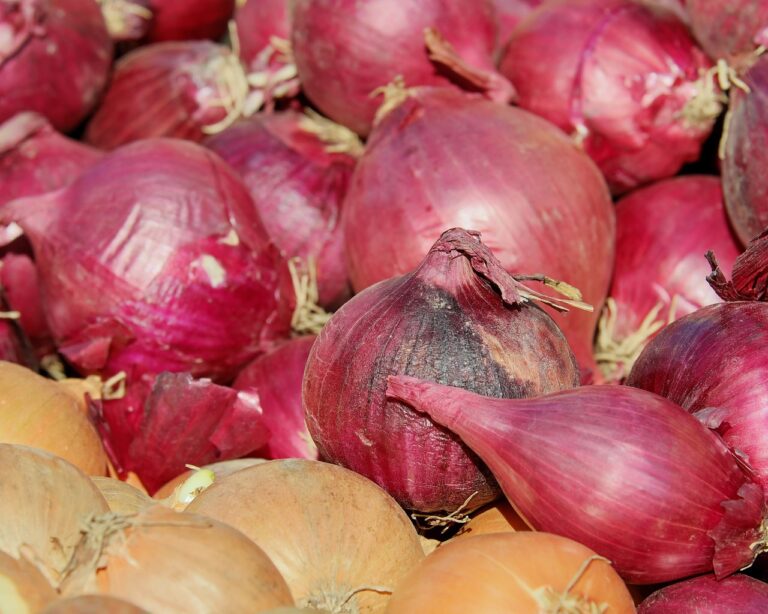The Impact of Genetically Modified Foods on Agriculture and Health
Genetically Modified Foods have the potential to address issues related to food security by increasing crop yields and providing resistance to pests and diseases. This can contribute to ensuring a stable and sufficient food supply for a growing global population. Additionally, GM foods can help reduce the need for chemical pesticides and herbicides, leading to improved environmental sustainability and decreased exposure to harmful chemicals.
Furthermore, genetically modified crops have the ability to enhance the nutritional content of foods, such as increasing the levels of essential vitamins or antioxidants. This could potentially help in combating malnutrition and deficiencies in certain regions where access to diverse and nutrient-rich foods is limited. By harnessing the benefits of genetic modification, it is possible to explore innovative solutions for improving the overall quality and availability of food worldwide.
• GM foods can increase crop yields and provide resistance to pests and diseases
• Helps ensure a stable and sufficient food supply for a growing global population
• Reduces the need for chemical pesticides and herbicides, improving environmental sustainability
• Decreases exposure to harmful chemicals
• Enhances the nutritional content of foods by increasing essential vitamins or antioxidants
• Combats malnutrition and deficiencies in regions with limited access to diverse foods
• Offers innovative solutions for improving the quality and availability of food worldwide
Challenges Faced by Farmers Growing GM Crops
One significant challenge faced by farmers growing genetically modified (GM) crops is the potential for cross-contamination with non-GM crops. Since pollen from GM crops can be carried by wind or insects to neighboring fields, there is a risk of unintentional mixing of GM and non-GM crops. This can pose problems for farmers who want to maintain the purity of their non-GM crops for specific markets that require non-GMO products.
Another challenge that farmers growing GM crops encounter is the resistance developed by pests and weeds. Over time, pests and weeds can adapt to the genetically modified traits in the crops, making the GM crops less effective in pest and weed control. This resistance can lead to increased pesticide or herbicide use, which can be costly for farmers and also have environmental implications. Farmers may need to employ diverse pest management strategies to address this challenge effectively.
Economic Impacts of GM Foods on Agriculture
Economic impacts of genetically modified (GM) foods on agriculture are a topic of growing interest and debate. The introduction of GM crops has led to increased crop yields in many regions, which can have positive effects on the economy. By producing higher yields per acre, farmers can potentially increase their profits and contribute to overall economic growth within the agricultural sector. Additionally, GM crops may require less need for pesticides or herbicides, which can result in cost savings for farmers and improved environmental sustainability.
However, there are also concerns regarding the economic impacts of GM foods on agriculture. One major issue is the potential for increased dependency on large seed companies that hold patents on GM seeds. This can lead to higher seed costs for farmers and decreased genetic diversity in crops, which may pose risks in the long term. Additionally, there are uncertainties surrounding the long-term economic effects of GM crops on global food prices and market dynamics. As the adoption of GM crops continues to rise, it is essential to closely monitor and assess the economic implications for all stakeholders involved in agriculture.
What are some potential benefits of genetically modified foods?
Genetically modified foods have the potential to increase crop yields, reduce the need for chemical pesticides, and improve the nutritional content of crops.
What challenges do farmers face when growing GM crops?
Farmers growing GM crops may face challenges such as resistance from consumers, regulatory hurdles, and concerns about the long-term environmental impact of GM crops.
How do GM foods impact the economy of agriculture?
GM foods can have a significant economic impact on agriculture by potentially increasing productivity, reducing production costs, and opening up new markets for farmers.
Are there any potential drawbacks to genetically modified foods?
Some potential drawbacks of GM foods include concerns about food safety, environmental impacts, and the potential for increased corporate control over the food supply.
How do GM foods compare to organic foods in terms of economic impact?
GM foods and organic foods have different economic impacts on agriculture, with GM foods often being more cost-effective to produce but facing resistance from consumers who prefer organic options.







